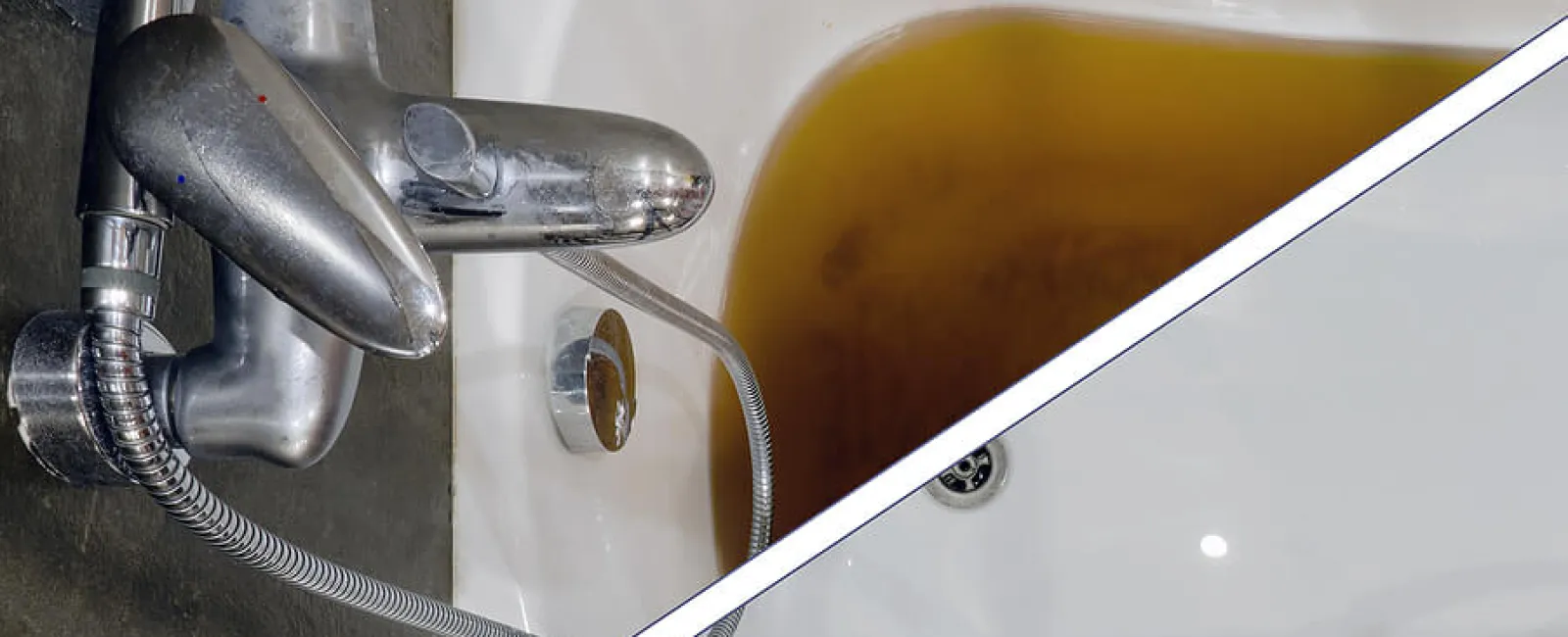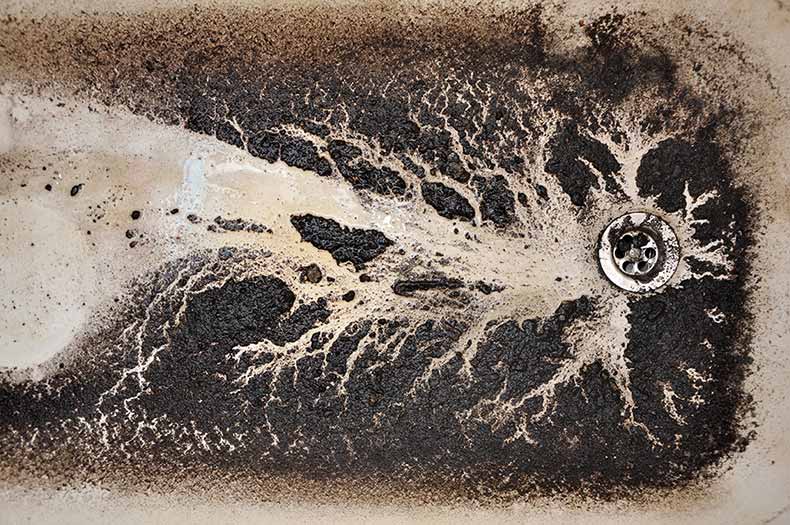Causes for Effluent Rising Through the Bathtub
Causes for Effluent Rising Through the Bathtub
Blog Article
Every person has got their own individual idea involving Why is Sewage Backing Up Into My Bathtub?.

Sewer backup in the tub can be a distressing and unsanitary trouble for any house owner. Not only is it inconvenient, yet it likewise poses severe health dangers and shows underlying problems with the plumbing system. Recognizing why sewage is turning up through the tub is crucial for taking proper activity to deal with the trouble effectively.
Introduction to the Issue
Recognizing the Issue
When sewage draws back up right into the bathtub, it's a clear indicator of a problem with the water drainage system. The wastewater that needs to be flowing far from your home is rather discovering its back into your space, which can result in substantial damages and carcinogen.
Potential Causes
A number of aspects can contribute to sewer backup in the tub. From blockages in the drain line to concerns with the plumbing infrastructure, determining the origin is vital for locating a solution.
Typical Factors for Sewer Back-up
Clogs in the Sewer Line
One of the most common root causes of sewer back-up is an obstruction in the drain line. This can happen because of the build-up of debris, grease, or foreign things in the pipelines, protecting against correct circulation and triggering sewage to back up right into your tub.
Tree Root Intrusion
Tree roots looking for wetness and nutrients can infiltrate sewage system lines via tiny splits or joints. Gradually, these origins can expand and expand, creating substantial damages to the pipelines and resulting in sewer backup concerns.
Aging Framework
Older homes may have obsoleted plumbing systems that are much more vulnerable to corrosion, splits, and deterioration. As pipelines age, they come to be more vulnerable to leaks and obstructions, enhancing the likelihood of sewage back-up incidents.
Heavy Rainfall or Flooding
During durations of heavy rainfall or flooding, the drain system might end up being overwhelmed with excess water, triggering backups and overflows. This can cause sewer supporting right into bathtubs and various other fixtures inside the home.
Health Dangers Connected With Sewage Backup
Contamination of Water
Sewage back-up can infect the water supply in your house, posturing a severe wellness threat to you and your household. Exposure to contaminated water can bring about intestinal issues, skin infections, and other diseases.
Spread of Disease
Sewage includes dangerous microorganisms, infections, and parasites that can cause a range of conditions, including liver disease, cholera, and gastroenteritis. Coming into contact with sewage or polluted surfaces puts you at risk of infection.
Mold Development
Moisture from sewage backup can produce excellent problems for mold development in your home. Mold spores can aggravate respiratory issues and cause allergies in delicate people, making punctual cleaning important.
Signs of Sewage Back-up
Foul Odors
Undesirable odors originating from drains or components, particularly in the washroom, might suggest sewage back-up issues. These smells are commonly strong and consistent, signifying an issue that needs instant focus.
Slow Draining Fixtures
Tubs, sinks, and bathrooms that drain pipes slowly or not in any way could be experiencing sewer back-up. If several components are influenced simultaneously, it's likely that the issue stems from a common point, such as the major sewage system line.
Gurgling Sounds
Odd gurgling or bubbling noises originating from drains pipes when water is running in other places in the house are indicative of air entraped in the plumbing system. This air accumulation can result from sewage backup and need to be investigated promptly.
Immediate Actions to Take
Shutting Off Water System
In case of sewage backup, it's necessary to turn off the supply of water to stop additional contamination and damages. Locate the major water shutoff valve in your home and closed it off till the concern can be resolved.
Speaking To an Expert Plumber
Managing sewer backup is not a DIY task. Call a qualified plumber with experience in managing sewage-related concerns to analyze the circumstance and carry out necessary repairs or cleanups.
Avoiding Contact with Contaminated Water
Up until the sewage back-up is settled, stay clear of contact with infected water to avoid the spread of bacteria and pathogens. Put on safety equipment if you have to remain in the affected location and clean your hands thoroughly later.
Safety nets
Regular Maintenance of Sewer Lines
Schedule normal assessments and upkeep of your sewage system lines to determine and attend to possible concerns prior to they rise into major problems. This can consist of cleaning particles, checking for tree origin breach, and fixing any type of damaged pipes.
Mounting Bayou Shutoffs
Take into consideration installing bayou valves in your plumbing system to stop sewage from flowing back into your home during periods of heavy rainfall or flooding. These valves immediately close when water draws back up, shielding your building from contamination.
Correct Disposal of House Waste
Avoid flushing anything apart from toilet paper and human waste down the bathroom to stop blockages and obstructions in the sewage system line. Dispose of oil, oil, and various other household chemicals properly to lessen the threat of plumbing troubles.
Cleaning Up After Sewage Back-up
Sanitation Procedures
Thoroughly sanitize and disinfect affected areas after sewage back-up to remove hazardous germs and protect against mold and mildew growth. Use suitable cleaning products and protective gear to make sure risk-free and reliable clean-up.
Repair of Influenced Areas
Fix any damages to floor covering, walls, or components triggered by sewer backup. Relying on the degree of the damage, you may need to replace carpets, drywall, or various other materials to restore your home to its pre-loss condition.
Why is There Sewage Coming Up Through the Bathtub
Sewage in your bathtub is a major problem that can make you want to abandon the bathroom for good. You don’t have to. However, it is important to identify the source of the issue and take the necessary steps to resolve it in order to avoid any health risks and property damage. In this article, we will discuss what could be causing sewage to back up through your bathtub so you can take action quickly and effectively.
The Main Reason For Sewage Backup in The Bathtub
All the sinks and toilets in your home connect to different pipes that lead to the main sewer line. The sewer line then connects to the municipal sewer system. This connection works seamlessly on a daily basis, but there can sometimes be a problem with the main sewer line.
The most common cause of sewage backup is a clogged or blocked main sewer line. The main sewer line can be clogged due to the accumulation of debris, tree roots or grease buildup, or other materials. Another possible cause is a collapsed pipe. When this happens, your toilets and sinks won’t be able to drain properly. This is when sewage starts backing up through the bathtub. If the problem has been occurring for some time now, it might be time to consult with a plumber as there may be more severe damage that needs fixing.
How Can You Tell if it’s Coming From Your Sewer Line?
If you’re experiencing a sewage backup in your bathtub, then you can use a few simple methods to determine if it is coming from the main sewer line. First, try to unclog the tub drain with a plunger or an auger and see if that helps. If not, then inspect all of the drains in your house and check if there is any blockage in them. If some of the other drains are not working fine, then it’s likely the problem is with your main sewer line.
Common Signs of a Clogged Main Sewer Line
If you suspect that your main sewer line is blocked, then there are a few common signs to look out for. Frequent clogs in your home are a sure sign of a clogged sewer line. You can also check for slow drainage from all the plumbing fixtures.
Slow Drains
If you notice that it takes longer for your sinks and toilets to drain, then this could be a sign of a clogged main sewer line.
Frequent Clogs
Another common sign is that your drains or toilets become clogged almost all of the time. If this happens, then it could be a sign that the main sewer line is blocked.
Water Backup
Do you notice water or sewage coming back up from any of the drains in your home? If your answer is yes, you may have a clogged main sewer line.
Sinkholes
If you’ve noticed sinkholes in your yard or overflowing sewage from the ground, you may be facing a blocked sewer line issue.
Your Shower or Sink Makes Gurgling Noises
Have you noticed gurgling noises coming from your sink or shower lately? These are typically signs of a blocked sewer line and should be checked out immediately.
How to Prevent a Main Sewer Line Clog
Once you’ve identified that your main sewer line is clogged, it’s important to take steps to prevent it from happening again. The best way to do this is to avoid putting any solid material that can clog the drain, such as grease and other debris. You should also be mindful of what you flush down your toilet. In addition, you should schedule regular maintenance for your main sewer line. This will help keep it clear and free from clogs or backups.
What Should You do if You Notice Sewage Backing up Through The Bathtub?
If you’ve noticed sewage backing up through the bathtub, then it is important to call a professional plumber immediately. A plumber can inspect the situation and determine what the cause is, such as a blocked main sewer line. They will also be able to advise you on how best to fix the issue. In some cases, a simple drain cleaning may be all that is needed.
However, if the blockage is severe, then your plumber may need to use more advanced methods to clear the blockage.
No matter what, it is important to always call a professional plumber if you experience any kind of sewage backup. They will be able to assess the situation and provide you with a solution that is best for your home.
https://baylorinc.com/blog/why-is-there-sewage-coming-up-through-the-bathtub/

As a keen reader about Water Coming up Bathtub Drain, I was thinking sharing that segment was important. Make sure you take the time to promote this page if you enjoyed reading it. Thank you for being here. Kindly stop by our site back soon.
Request An Appointment
Report this page